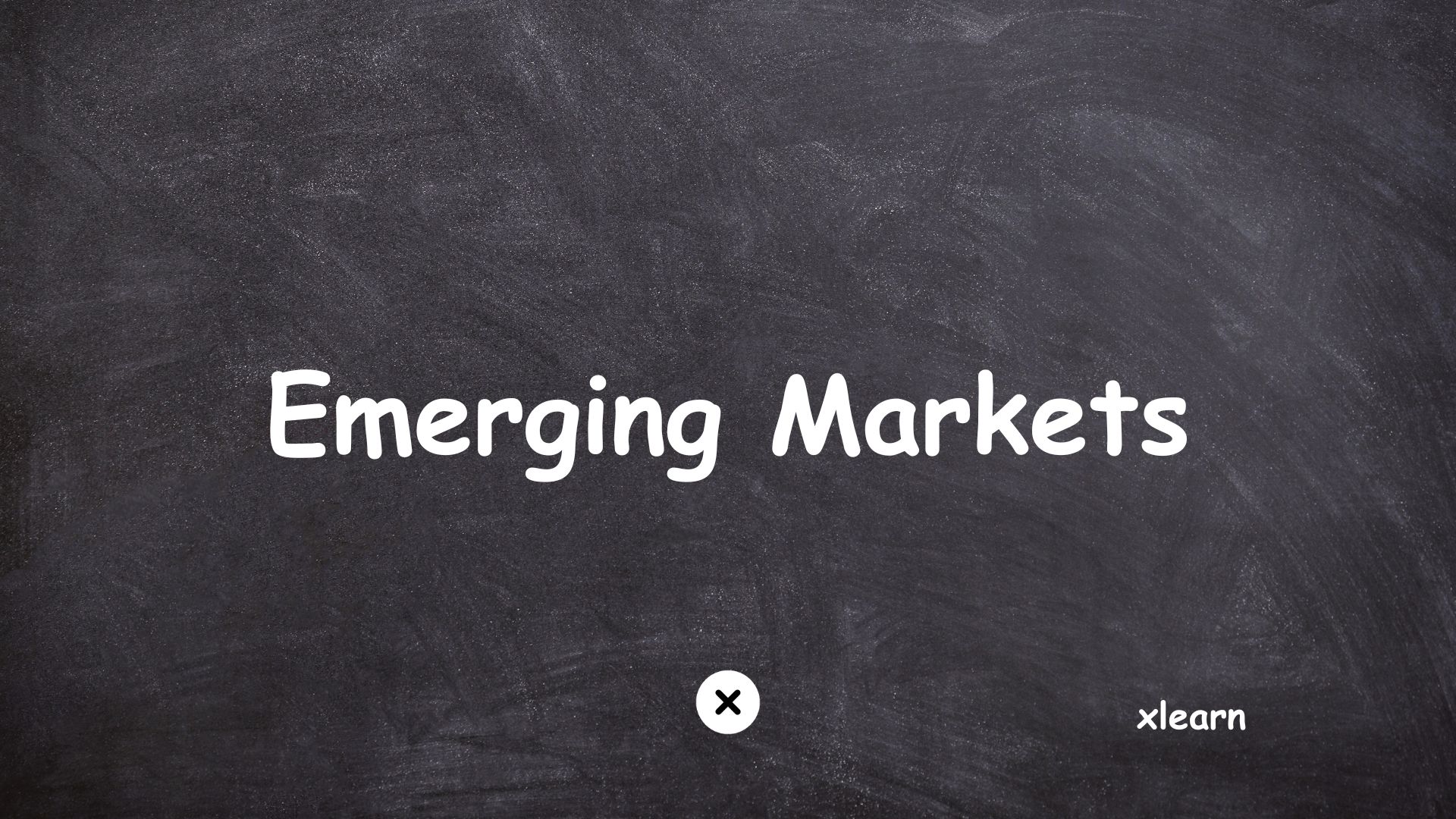
Investing in Emerging markets refers to the practice of investing in financial markets of developing countries that exhibit rapid economic growth, industrialization, and increasing integration into the global economy. These markets are often characterized by higher potential returns but also higher risks compared to more established or developed markets.
Investing in Emerging markets has become an increasingly attractive option for investors seeking high potential returns and portfolio diversification.
What are emerging markets?
Emerging markets encompass a diverse group of countries in various stages of development. These economies exhibit the potential for substantial growth, typically characterized by rising income levels, increased industrialization, and integration into the global economy.
Examples include countries from Asia (China, India), Latin America (Brazil, Mexico), and Africa (Nigeria, South Africa).
Investors are drawn to emerging markets due to the promise of higher potential returns. As these economies grow, companies within them often experience significant expansion, leading to increased profitability and stock value.
Additionally, Adding emerging market investments to a portfolio can enhance diversification, potentially reducing overall risk. The performance of emerging market assets may not be closely correlated with that of developed markets, offering a valuable hedge against economic downturns in more mature economies.
This means that the economic cycles of different countries may vary. Some markets may perform poorly, while others do well. This provides a form of protection.
How to invest in emerging markets?
Investors can gain exposure to emerging markets through various asset classes, including equities, bonds, currencies, and commodities. Equity investments may involve direct purchases of stocks, while bonds can provide fixed-income exposure. Exchange-traded funds (ETFs) and mutual funds offer convenient ways to access these markets while spreading risk across a broad range of assets.
Not all emerging markets are the same, and careful consideration is necessary when selecting countries and sectors for investment. it’s crucial to acknowledge the higher risks associated with emerging market investing. Political instability, regulatory uncertainties, currency volatility, and liquidity concerns are among the challenges investors may face.
Also currency fluctuations are a significant consideration in emerging market investing. Investors should be mindful of the impact of exchange rate movements on returns and consider hedging strategies to manage currency risk effectively.
Successful emerging market investing often requires a patient, long-term perspective. While these markets can be volatile in the short term, the potential for substantial returns may take time to materialize. Investors with a horizon beyond immediate market fluctuations may be better positioned to capitalize on the growth potential of emerging markets.
Best emerging markets ETFs for investing
One simple way to include emerging markets in your investment portfolio is by putting money into ETFs focused on these markets. Here are a few examples. Each serves a different goal, so choose the one that matches your comfort with risk and meets your preferences.
- iShares MSCI Emerging Markets ETF (EEM): This is one of the most popular and widely traded ETFs that tracks the MSCI Emerging Markets Index. EEM provides broad exposure to large and mid-cap companies in emerging markets, including countries like China, South Korea, Taiwan, India, Brazil, and others.
- Vanguard FTSE Emerging Markets ETF (VWO): VWO is another widely used ETF that tracks the FTSE Emerging Markets All Cap China A Inclusion Index. It offers exposure to a comprehensive set of emerging market stocks, covering various sectors and countries.
- Schwab Emerging Markets Equity ETF (SCHE): This ETF aims to track the performance of the FTSE Emerging Index and provides investors with low-cost exposure to companies in emerging markets.
- SPDR S&P Emerging Markets Dividend ETF (EDIV): This ETF focuses on high-dividend-yielding stocks in emerging markets. It tracks the performance of the S&P Emerging Markets Dividend Opportunities Index.
- iShares Core MSCI Total International Stock ETF (IXUS): While not exclusively focused on emerging markets, IXUS provides broad exposure to both developed and emerging markets. It tracks the MSCI ACWI ex USA Investable Market Index.
- WisdomTree Emerging Markets High Dividend Fund (DEM): DEM is designed to provide exposure to high-dividend-yielding stocks in emerging markets. The index it tracks is dividend-weighted, offering a unique approach to investing in income-generating stocks in these markets.
- iShares J.P. Morgan USD Emerging Markets Bond ETF (EMB): EMB tracks the J.P. Morgan EMBI Global Core Index, providing exposure to U.S. dollar-denominated bonds issued by emerging market governments and corporations.
You can easily purchase and sell these ETFs using Interactive Brokers.
These are some usual options. You can decide to invest in a particular country if you like, but it requires a lot of research before picking the right one. It’s riskier, but if you’re correct, you can earn substantial returns compared to these ETFs.
Conclusion
Investing in Emerging markets offers a compelling blend of opportunities and risks for investors seeking to diversify their portfolios and capture the growth potential of developing economies. While the path may be challenging, those who approach it with careful consideration, research, and a long-term perspective can unlock the rewards that emerging markets have to offer. As with any investment, it’s crucial to align strategies with individual financial goals and risk tolerance.